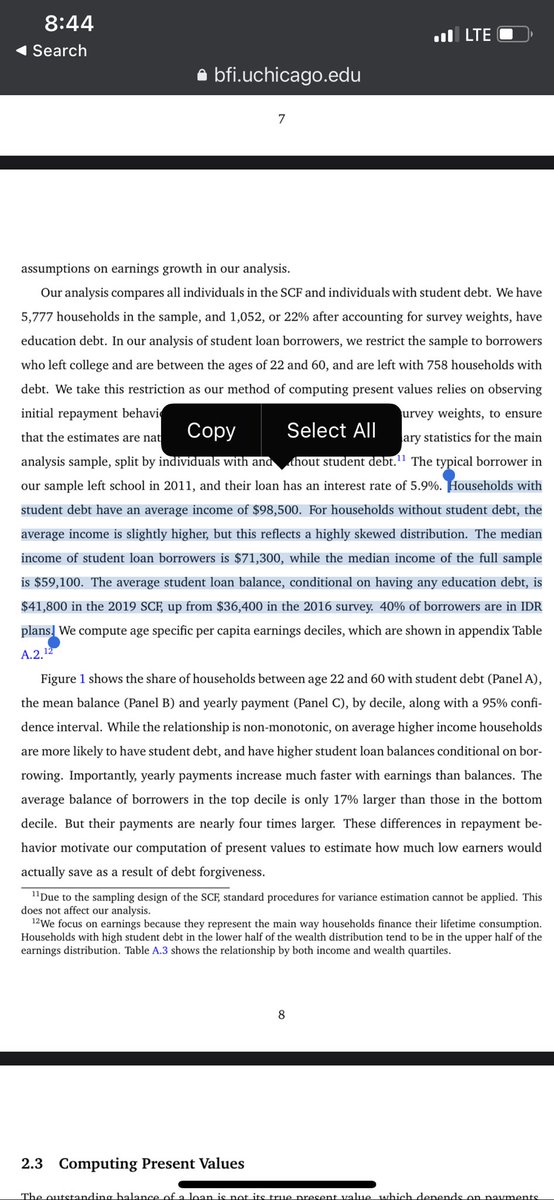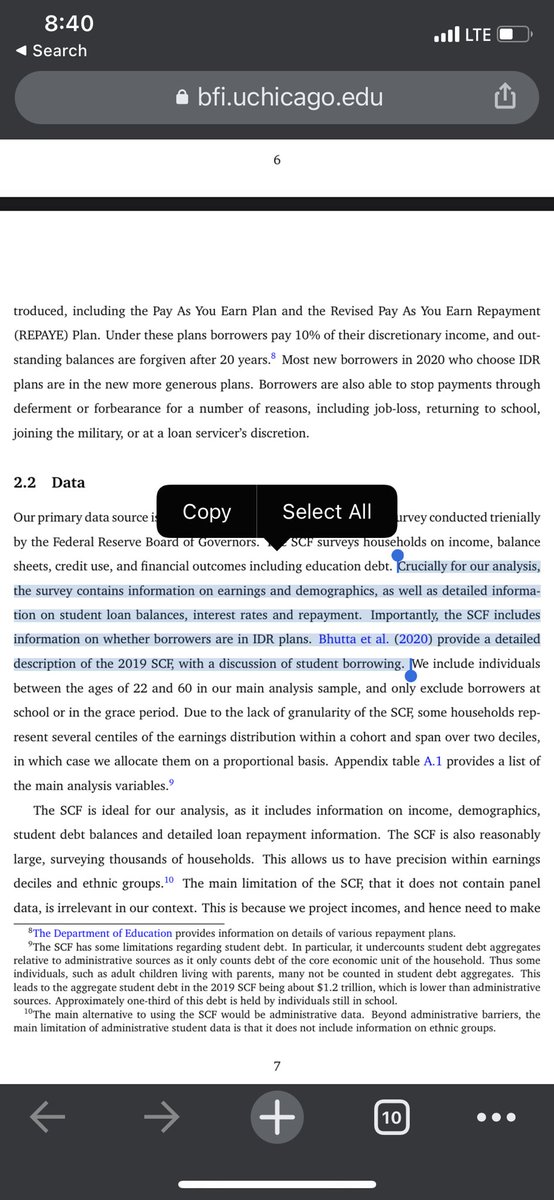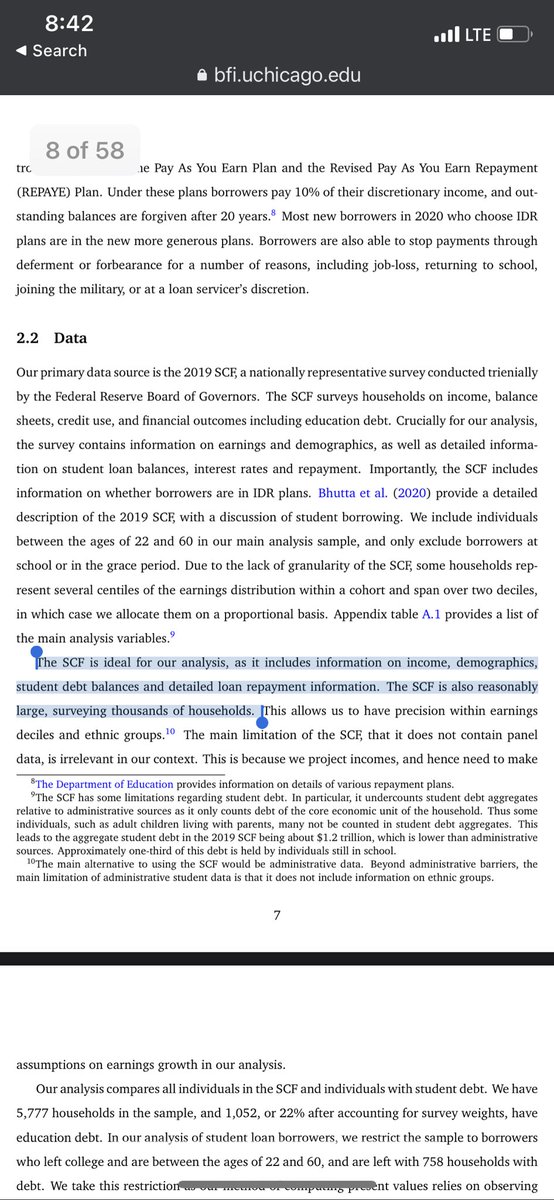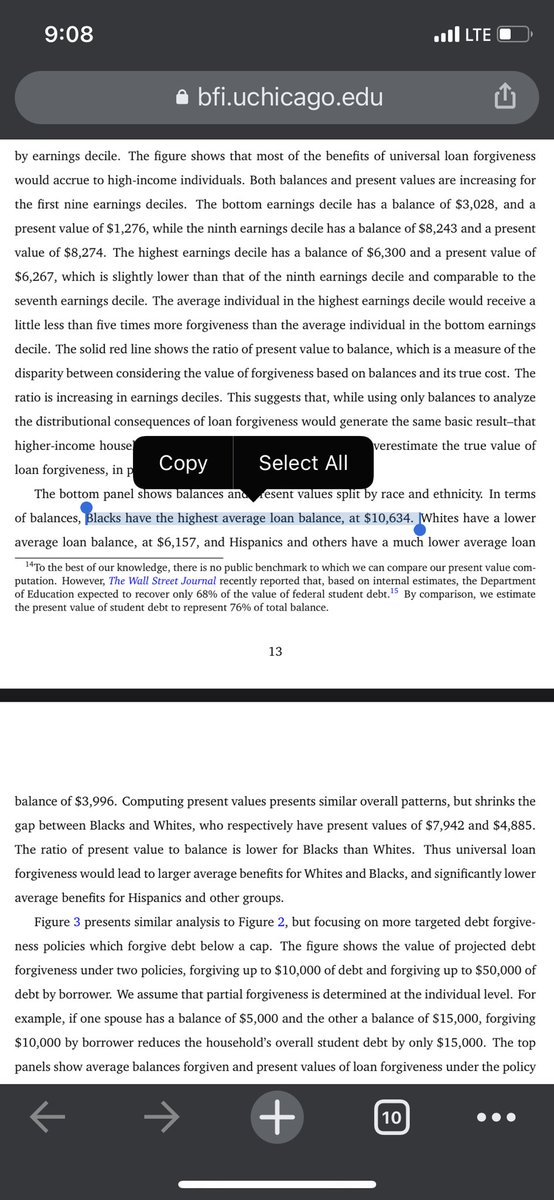I disagree. The analysis “proving” blatantly ignores generational wealthy people without student loans. https://twitter.com/joshuaogundu/status/1387493116748328962">https://twitter.com/joshuaogu...
The UChicago paper only compares households w/ student debt to the entire sample, which IMO is too broad. There aren’t income calculations for educated people w/o student debt - those likely to have generational wealth propping them up.
Given the data the researchers had access to, such a calculation is very much within reach. Painting all college educated professionals with the same brush ignores a lot of inequalities that exist within that cross-section.
Not drilling down further only preserves the advantages of professional who come from wealth and further disadvantages those who’ve didn’t. And what hope do working class people have for upward mobility, if they have to pay crippling amounts of debt to get there?
Speaking from personal experience, I went to a rich kid high school. They all write the check. Half those kids can’t even spell FAFSA  https://abs.twimg.com/emoji/v2/... draggable="false" alt="🥲" title="Smiling face with tear" aria-label="Emoji: Smiling face with tear">. Plenty of people who’ve gone to name brand-name schools have also attested to this.
https://abs.twimg.com/emoji/v2/... draggable="false" alt="🥲" title="Smiling face with tear" aria-label="Emoji: Smiling face with tear">. Plenty of people who’ve gone to name brand-name schools have also attested to this.
Supposedly in the spirit of “fairness” to those without degrees - often the parents, siblings, and relatives of professionals w/o generational wealth. Oftentimes, those professionals are breadwinners for their families, especially if they are POC or 1st Gen
Notably the paper mentions that Black people have the highest student loan balances.
Latine folks have the least, but I wonder if there are systemic factors influencing that.
Latine folks have the least, but I wonder if there are systemic factors influencing that.
I don’t see how crippling the ability of POC and 1st Gen professionals to take care of their working class relatives helps the working class...
And I don’t finger-wave people for going to expensive schools is helpful either. Expensive name-brand schools have stronger pipelines for post-grad opportunities that provide economic mobility. And top post-grad jobs open the door for even more lucrative jobs
Given the pervasive gatekeeping for competitive jobs in tech, business, and finance - industries where one has the best chance of making good money after school- brand-names schools offer the best chance to escape poverty.
State schools (excluding public ivys) while cheaper, don’t offer those same opportunities. And students from such schools often find themselves having to work harder to have the same chance at competitive opportunities as their counterparts from name-brand institutions.
I don’t think student loan forgiveness is a silver bullet. The government has to resume funding higher education and institute tuition caps to ensure that this problem is put to bed once and for all.
The government created the conditions for colleges to run like businesses and profit off of students seeking economic mobility and the government needs to take responsibility. But pitting non-wealthy folks against each other is not the way.

 Read on Twitter
Read on Twitter





